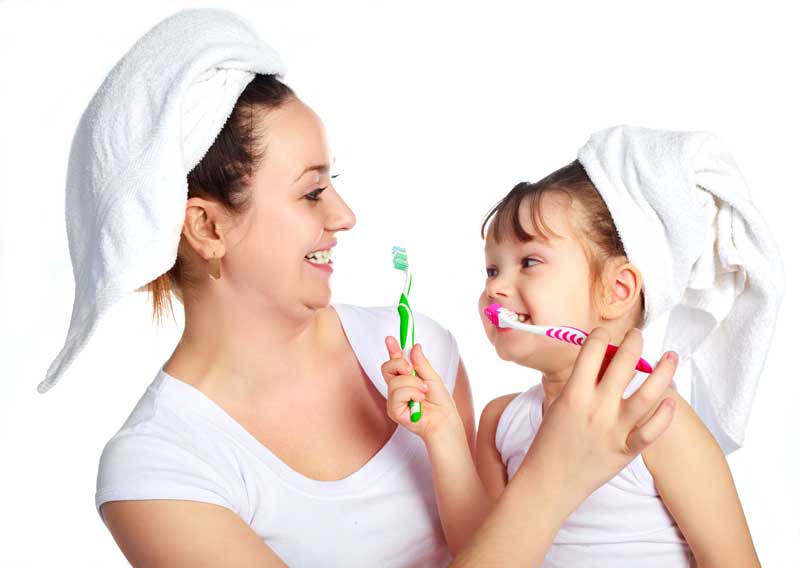How Often Should we Brush our Teeth?
 Oral Hygiene
Oral Hygiene
Good oral hygiene is crucial at every stage of life, but it is especially important during youth. Establishing healthy brushing habits early on sets the foundation for a lifetime of strong teeth and gums, preventing common dental issues like cavities and gum disease. But how often should we brush our teeth to maintain optimal oral health?
The Recommended Frequency for Brushing
The American Dental Association (ADA) recommends that everyone, including children and teenagers, brush their teeth twice a day—once in the morning and once before bed. This frequency is ideal for removing plaque, preventing tooth decay, and keeping gums healthy.
Why Twice a Day?
- Plaque Control: Plaque is a sticky film of bacteria that forms on teeth throughout the day. If not removed, it can harden into tartar, leading to cavities and gum disease. Brushing twice a day helps control plaque buildup, significantly reducing the risk of these dental problems.
- Preventing Morning and Nighttime Decay: Brushing in the morning removes the bacteria and food particles that have accumulated overnight. It also freshens breath and prepares the mouth for the day. Brushing before bed is equally important, as it removes the day’s debris and bacteria, preventing them from sitting on the teeth overnight, which is when decay-causing acids are most active.
- Gum Health: Regular brushing not only protects teeth but also promotes healthy gums. By removing plaque from the gumline, brushing twice daily helps prevent gingivitis, an early stage of gum disease that can cause swelling, bleeding, and discomfort.
The Right Way to Brush
- Use a Soft-Bristled Toothbrush: A soft-bristled brush is gentle on the gums and enamel but effective at removing plaque. Replace the toothbrush every three to four months, or sooner if the bristles are frayed.
- Brush for Two Minutes: It’s important to brush for a full two minutes to ensure that all surfaces of the teeth are thoroughly cleaned. Many people fall short of this time, so using a timer or an electric toothbrush with a built-in timer can help.
- Use Fluoride Toothpaste: Fluoride strengthens enamel and helps prevent cavities. A pea-sized amount of fluoride toothpaste is sufficient for youth.
- Brush All Surfaces: Make sure to brush the outer surfaces, inner surfaces, and chewing surfaces of all teeth. Use gentle circular motions and be sure to brush the gumline as well.
- Don’t Forget the Tongue: Bacteria can build up on the tongue, leading to bad breath. Gently brushing the tongue can help keep the mouth clean and fresh.
The Role of Flossing and Mouthwash
While brushing twice a day is essential, it’s not the only component of a good oral hygiene routine. Flossing and using mouthwash also play vital roles.
- Flossing: Flossing once a day removes food particles and plaque from between the teeth where a toothbrush can’t reach. It’s an important step in preventing cavities and gum disease.
- Mouthwash: Rinsing with an antiseptic mouthwash can help reduce bacteria in the mouth, freshen breath, and add an extra layer of protection against cavities and gum disease. However, mouthwash should not be used as a substitute for brushing or flossing.
The Risks of Over-Brushing
While it might seem that brushing more frequently could lead to even better oral health, over-brushing—especially with a hard-bristled brush or too much pressure—can actually cause harm. Over-brushing can wear down tooth enamel and irritate gums, potentially leading to sensitivity and gum recession. Therefore, it’s best to stick to the twice-a-day routine and focus on brushing correctly.
Establishing Good Habits Early
For youth, forming a twice-daily brushing habit can sometimes be challenging, especially with busy school schedules and extracurricular activities. However, parents and caregivers can play a significant role in encouraging these healthy habits. Here are some tips to Oral Hygiene
- Set a Routine: Encourage brushing at the same times every day, such as right after breakfast and just before bed. Consistency helps make brushing a regular part of the daily routine.
- Make It Fun: For younger children, use a fun toothbrush with their favorite character, or play a two-minute song while they brush to make the process enjoyable.
- Lead by Example: Children are more likely to adopt good habits if they see their parents practicing them too. Brush your teeth together as a family whenever possible.
- Use Positive Reinforcement: Praise and reward consistent brushing habits. A sticker chart or small rewards can motivate younger children to keep up with their brushing routine.
Conclusion
Brushing twice a day is the cornerstone of maintaining healthy teeth and gums during youth. By following the recommended brushing frequency and using proper technique, young people can significantly reduce their risk of cavities and gum disease, setting the stage for a lifetime of good oral health. With the right habits in place, brushing can become a simple, effective, and automatic part of the daily routine.
Share this content:





















Post Comment